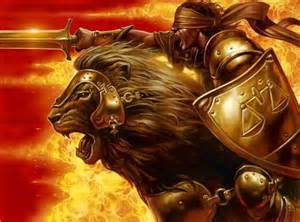This issue asks—Isaac or Ishmael?
SINCE YOU ASKED
One of the many outrageous claims made by Muslims is that Abraham took Ishmael, not Isaac to Mount Moriah to be sacrificed, and the covenant promises God made with Abraham would be transferred to Ishmael, not Isaac. Genesis 22 relays the well known story of Abraham and Isaac on Mount Moriah, while Genesis 17:18-21 and 21:10-12 clearly state that God would establish His covenant with Isaac, not Ishmael.
Ishmael, not Isaac to Mount Moriah to be sacrificed, and the covenant promises God made with Abraham would be transferred to Ishmael, not Isaac. Genesis 22 relays the well known story of Abraham and Isaac on Mount Moriah, while Genesis 17:18-21 and 21:10-12 clearly state that God would establish His covenant with Isaac, not Ishmael.
Chapter 21 tells us that prior to the great mountaintop sacrifice, Ishmael was living the life of a nomad in the wilderness regions of Beersheba and Paran, well over a hundred miles south of Mount Moriah. Since Ishmael couldn’t be in two places at the same time, and since no other historic or archeological claim of the Bible has been proven wrong, logic and history say it was Isaac, not Ishmael Abraham intended to sacrifice.
The typical Muslim response has been that the Bible has been corrupted, twisting some of the details, like who really accompanied Abraham for the sacrifice. Logic says that if some parts have been corrupted, then the entire book is suspect and should be dismissed. Yet, Muslims hang on to it in its “revised” form” as part of the basis of their religion, never stating how the supposed corruption actually took place.
In their official revised version, Muslims have come up with a Bible in which Mary, the mother of Jesus, is routinely confused with Miriam, the sister of Moses and Aaron, one of the plagues God sent upon Egypt was a flood, one of Noah’s sons never made it onto the ark, Haman, from the Book of Esther, is actually one of Pharaoh’s servants, and Nathan’s rebuke to David, Solomon’s administration of justice, and the lost sheep of Luke 15 are woven into a single story. As you muse over the significance of this, keep in mind that according to the Qur’an, Allah, the god of Islam, also wrote both the Old and New Testaments of the Bible, not Jehovah.
AS I SEE IT
The real issue goes much deeper than was it Isaac or Ishmael? Just as one error in the Bible would render the entire document suspect, so, one erroneous claim in the Qur’an would do the same. The Muslim response to all the historical inaccuracies and contradictions in the Qur’an is usually “abrogation,” the doctrine in which the earlier revelations of Muhammad are replaced by the later more mature revelations. This means that if two statements in the Qur’an are contradictory, the one closest to the end of the book is the right one. What was once true is replaced by a new truth. The same principle is applied to the Bible. Supposedly, it has been abrogated by the Qur’an, which reveals the new truth.
This leads to what I see as the mother of all contradictions. Sura 6:115 says that no one can change Allah’s words. That would include Allah himself. If that is true, the doctrine of abrogation is impossible. If you claim that abrogation applies to this verse, then there must be a later verse stating that someone can change Allah’s words. I have found no such verse. If Muslims interpret some verse to say this, then clearly, Allah could change his mind about anything at any time, reinforcing the Muslim belief that everything comes down to “if Allah wills.”
I am so glad that I serve a God Who never changes–a God whose Word has always been and will forever be true–a God Who sacrificed His Son to pay the penalty of my sin so that I could know for certain that I would receive eternal life by believing in the One Who gave His life for me.
RELATED ARTICLES
ON THE LIGHTER SIDE
I wonder how much deeper the ocean would be without sponges.





Leave A Comment